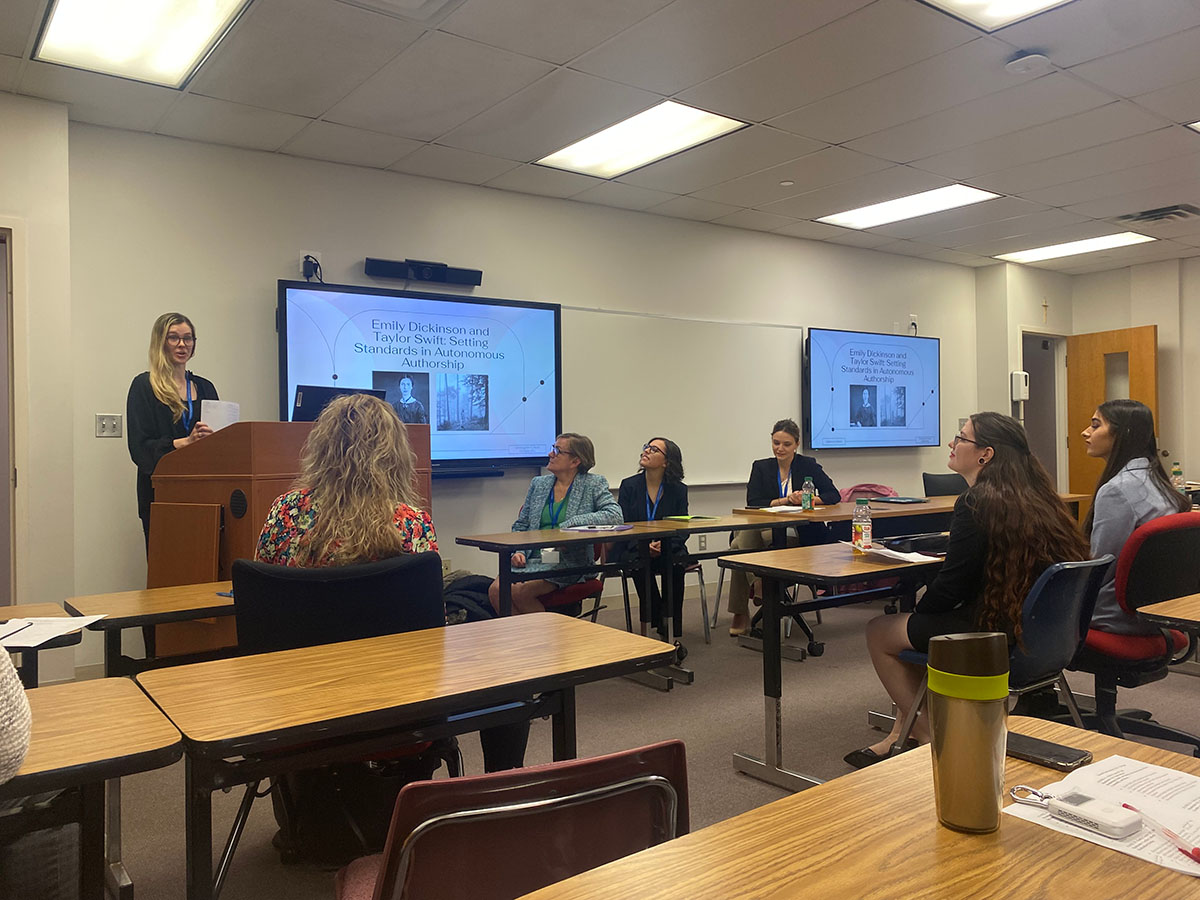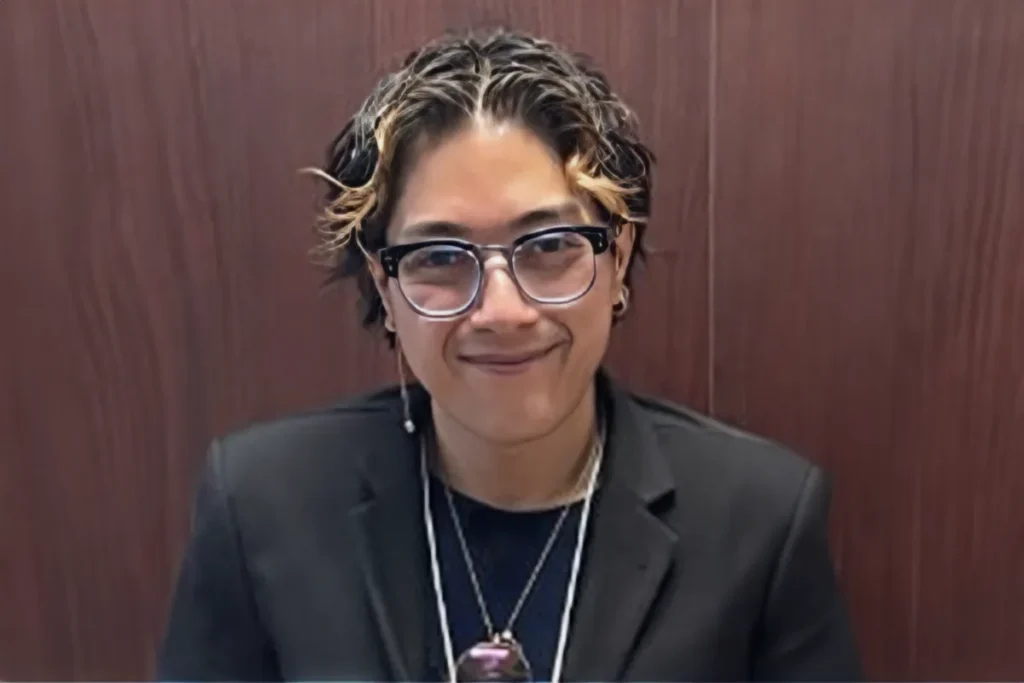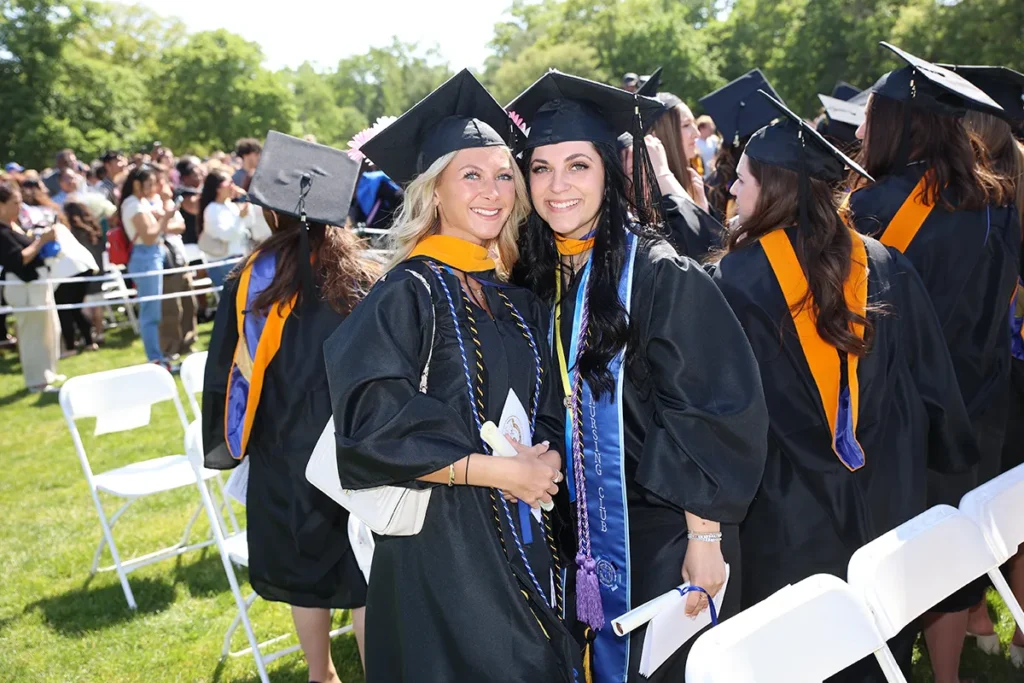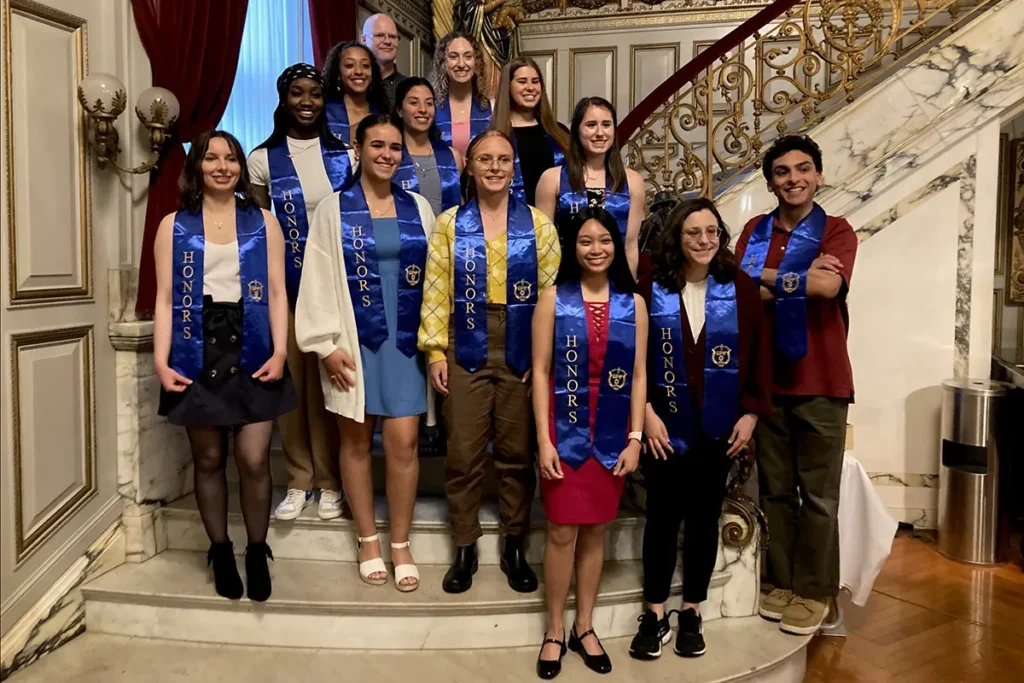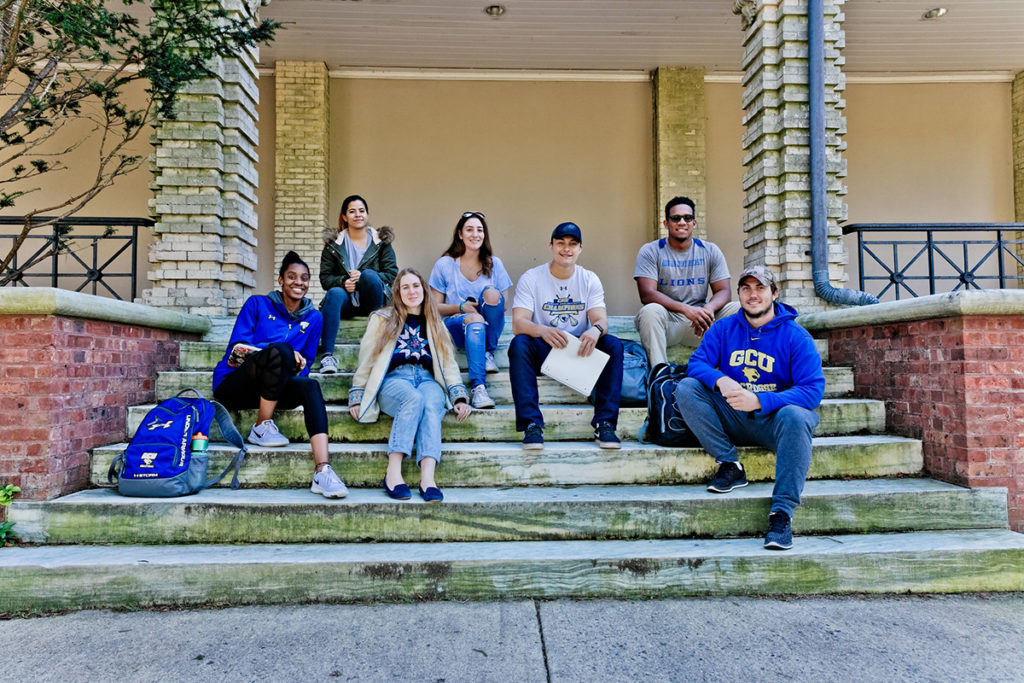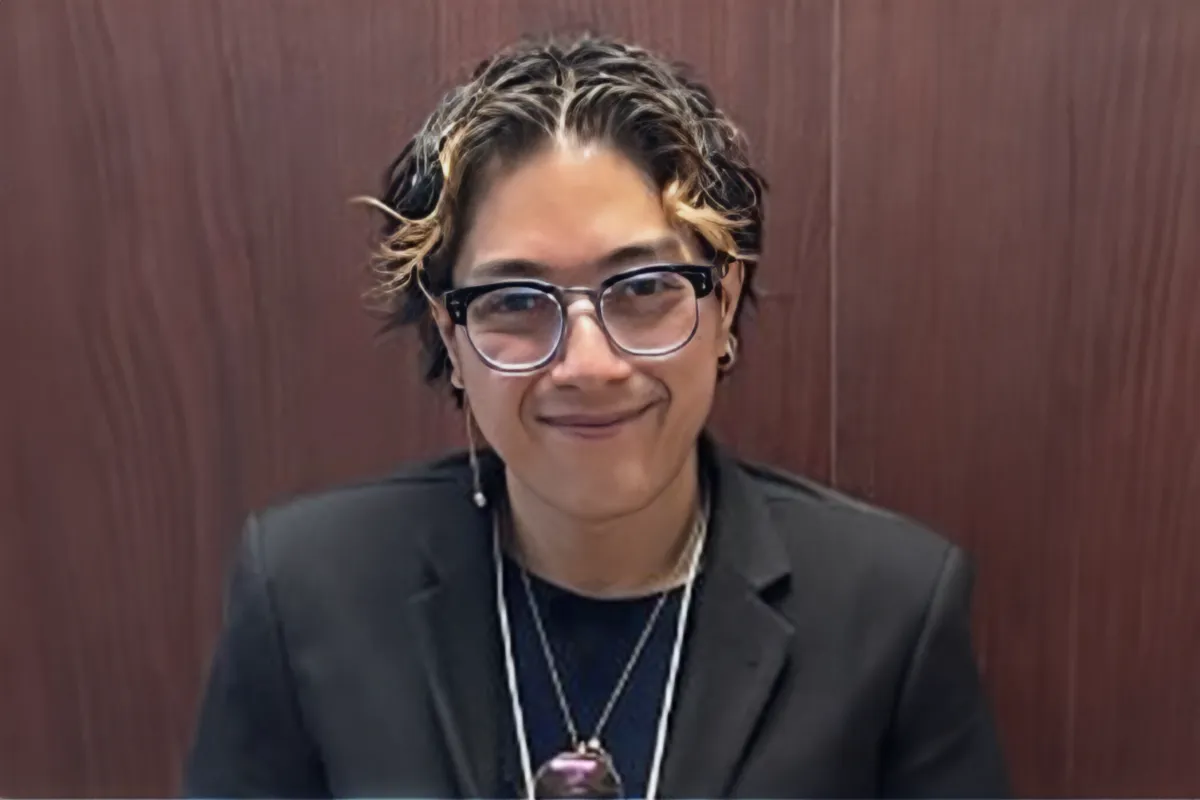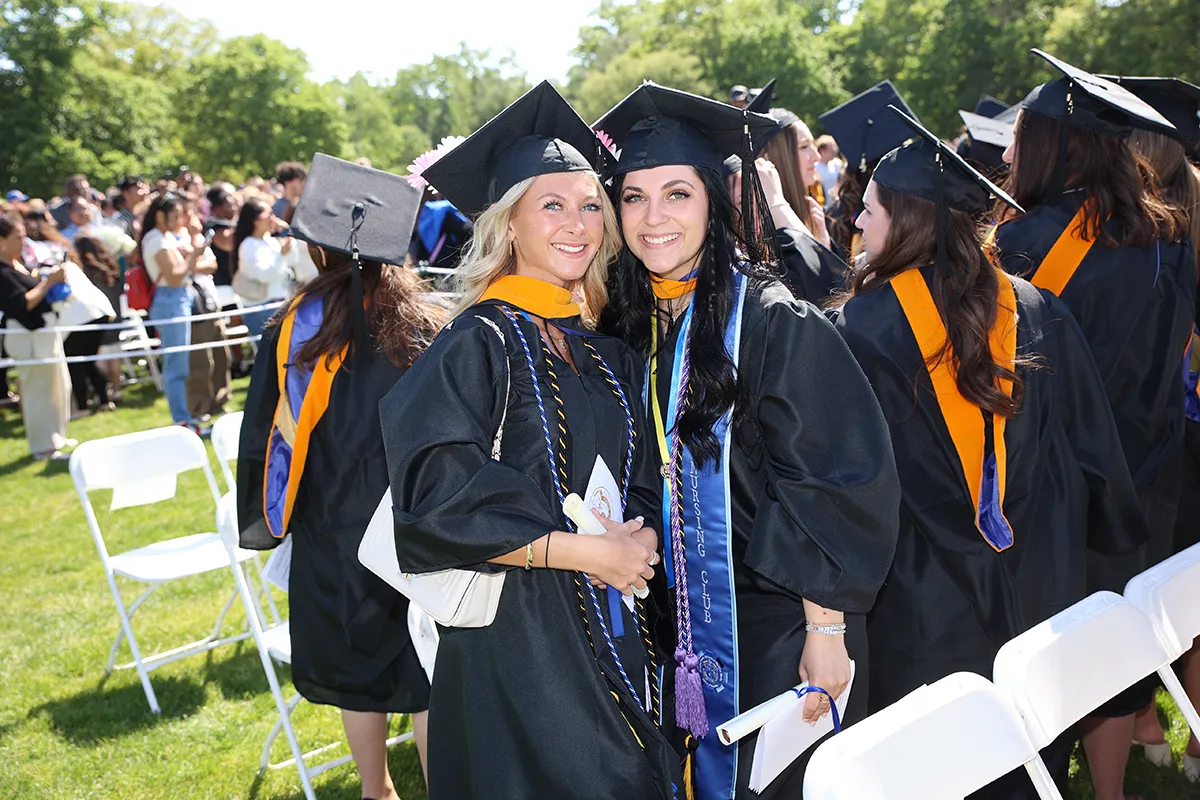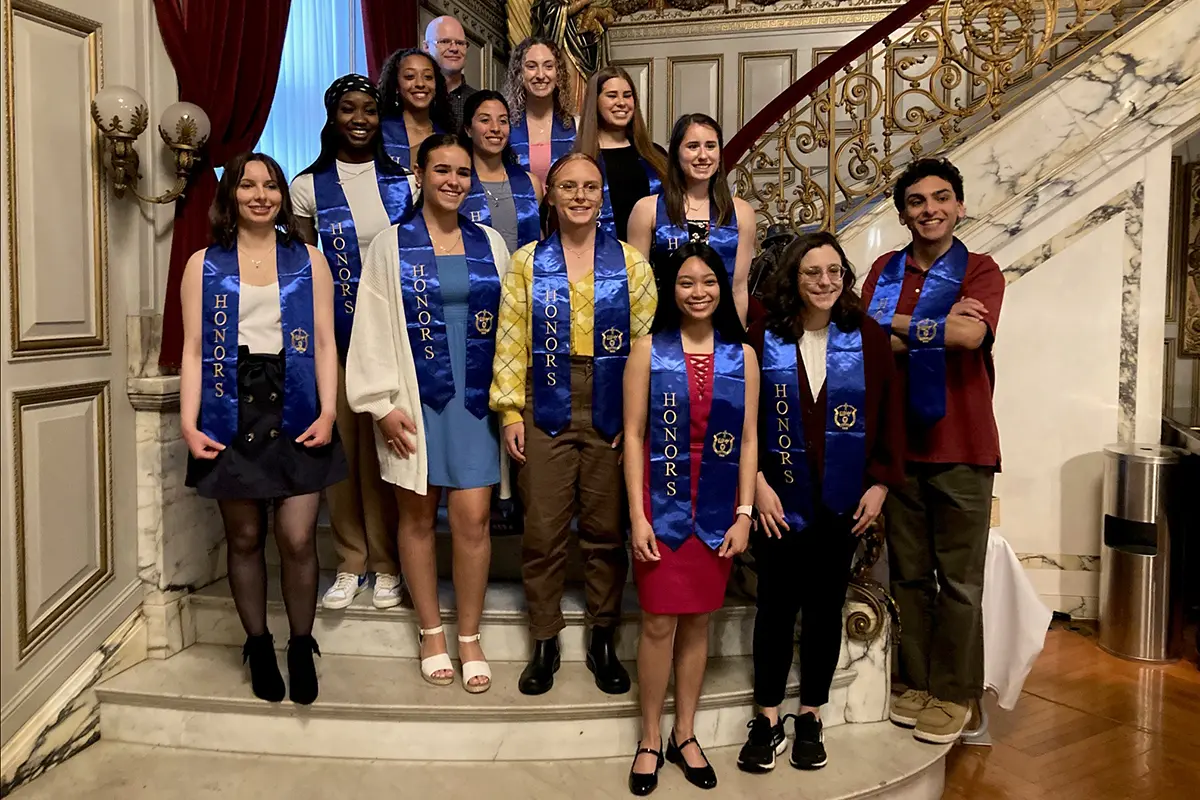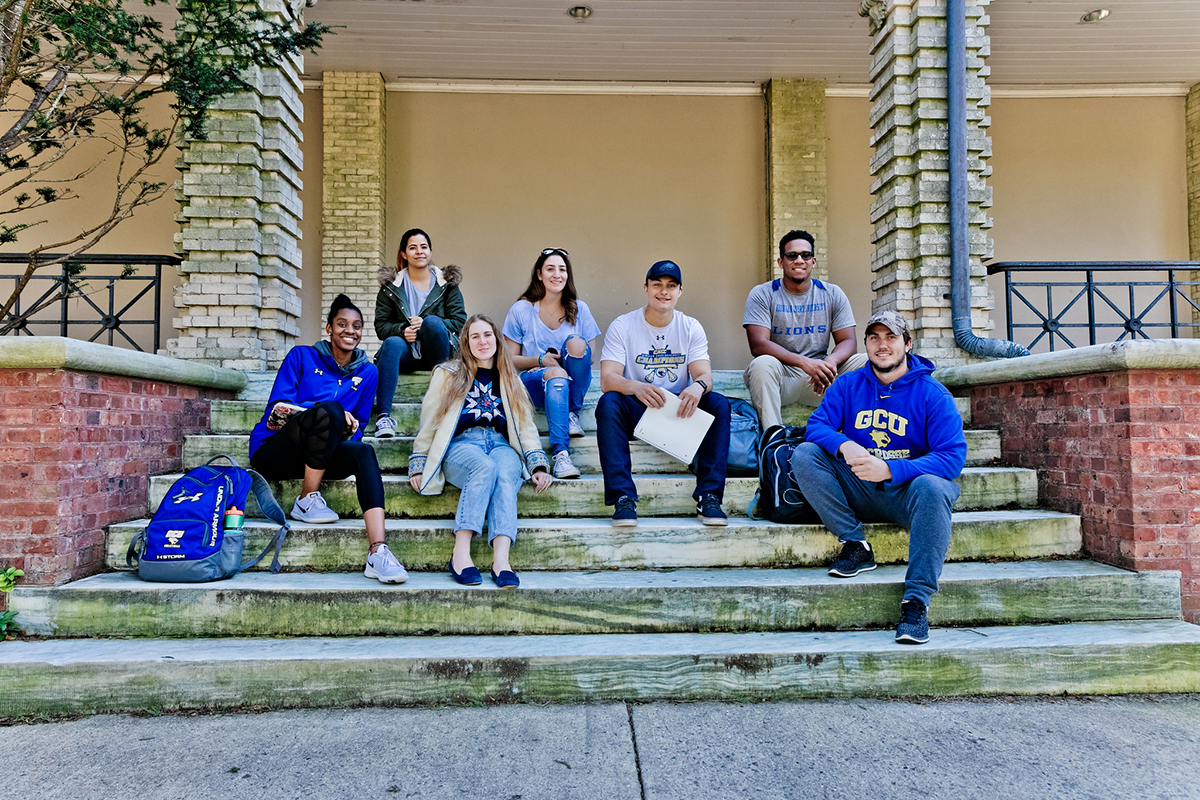Georgian Court University Hosted the 19th Annual Undergraduate Research Colloquium of the New Jersey Women and Gender Studies Consortium.
A special concern for women and social justice has been part of the Sisters of Mercy’s mission for Georgian Court University (GCU) for over 100 years. GCU continued this tradition by hosting the 19th Annual Undergraduate Research Colloquium of the New Jersey Women and Gender Studies Consortium (NJWGSC), a state-wide forum for discussion and support of Women’s and Gender Studies Programs.
Dr. Cynthia Ninivaggi, Director of Women’s Studies at GCU, organized the event in collaboration with Cecilia Colbeth and Erica Ryan, Chair and Treasurer of NJWGSC. The colloquium was well attended by student presenters, their families and friends, representatives from NJWGSC, Dr. Janice Warner – Provost of GCU, and other community members interested in learning more about the presentation topics.
32 student presenters represented colleges and universities from all over the state, including Georgian Court University, Rutgers University, Rider University, New Jersey City University, Drew University, Stockton University, Rowan University, The College of New Jersey, and Brookdale Community College. The presentations were 15 minutes each, grouped into 75-minute panel sessions with a few minutes for Q&A at the end. Three of the 32 student presenters were Georgian Court students.
Women’s and Gender Studies is interdisciplinary, so the presentations spanned many topics, looking through the feminist lens to gain a deeper understanding of the arts, history, religion, business, medicine, and the sciences. The student presenters were of all different majors, and the students chose which topics they wished to explore, from art to activism.
Brenna A. Sullivan, a freshman at GCU from Scotch Plains, NJ, presented Eating Disorders in Collegiate Running. Brenna spoke about the harmful habits that sometimes develop among collegiate runners, both male and female, such as refusing to refuel with food after practice. She explained how the typical goal-oriented, driven personality type of a collegiate runner and pressure from coaches can make these student-athletes more prone to eating disorders than other students. As a student-athlete on the cross country team, Brenna spoke from a place of care and concern for herself and her teammates.
“It’s time for the NCAA to release a statement on eating disorders in sports and how they plan to address the problem,” Brenna said, concluding her presentation with a solution-based mindset.
Brenna’s presentation was part of the panel titled Beyond Body Image: Fatphobia and Resistance, which consisted of other presentations such as Theorizing Nationalism in the Contexts of Gender, Fatphobia, and Motherhood by Kristen Stout from Rutgers University, or Blossoming of the Swan, an artistic reclaiming of the “ugly duckling” narrative, by Joy Acheampong from Rowan University.
Catherine Quinn, a senior at GCU from Wall, NJ, sparked discussion about ownership and artistry through her project, Emily Dickinson and Taylor Swift: Setting Standards in Autonomous Authorship. Catherine drew parallels between the lives of 19th-century poet Emily Dickinson and 21st-century singer-songwriter Taylor Swift, both of whom prioritized personal privacy while creating art for the masses. She explained how both women faced discrimination as female artists in male-dominated spaces, having to overcome issues of autonomy and identity concerning their art.
“The parallels between the two artists are more than accidental. Having to delicately balance public and private life was an inspiration for both women, who comment upon how the public perceives them in their work,” said Catherine.
Catherine’s presentation was part of the panel titled Rethinking Gender and Identity at the Intersection of Race, Coloniality, and History, which included other presentations such as Transgender and Nonbinary Athletes: Policy, Politics, and Public Opinion by Gwen Gochal from Brookdale Community College.
GCU students Sierra Porter, Jhelaine Palo, and Jessica Bis worked together on an activism project titled Asian American Pacific Islander Invisibility. Sierra, a senior from Brick, NJ, presented the project in person at the consortium on behalf of the entire group. The students’ goal was to raise awareness of Asian American and Pacific Islander (AAPI) hate and debunk false narratives and harmful stereotypes about these groups. They created a website, aapi-invisibility.weebly.com, which takes users through a historical timeline of AAPI hate in the U.S. and debunks myths such as the “Model Minority Myth,” which has been used to justify hate against the AAPI community in recent years.
“What do we do now? We must continue to educate ourselves on these issues, combat stereotypes, uplift AAPI voices, and make the invisible visible,” said Sierra, helping the audience look towards a safer future for the AAPI community.
Sierra’s project was part of the panel titled Decolonial Perspectives on Gender and Sexuality, which included other presentations such as The “Hula Girl” and Colonialism by Rebecca Sharp from Rider University, which breaks down how the Hawaiian Hula dance has been appropriated by Western culture.
The other panels that took place throughout the day were titled Medicalized Bodies, Gender and Spirituality, and Black Women, The Black Freedom Struggle, and Resistance against Colonialism.
The keynote speaker was Dana Sussman, Acting Executive Director of Pregnancy Justice. This non-profit organization fights for the civil and human rights of pregnant people by defending them against criminalization and other punitive state action because of their pregnancies or pregnancy outcomes.
At the end of the day, an awards ceremony was held to recognize the student presenters who went above and beyond in their informative presentations. The first-place awards went to Abigail Mitchell from Rutgers University for An Argument for Holistic Education in Neoliberal, Post-pandemic Times, Ria Shah from The College of New Jersey for Global Reproductive Justice: A Literature Review on Barriers to Sexual and Reproductive Health in Conflict Zones, and Victoria Gramlich from Drew University for Women of the Caribbean.
The second-place awards went to GCU’s own Catherine Quinn for Emily Dickinson and Taylor Swift: Setting Standards in Autonomous Authorship and to Renee Ramos from New Jersey City University for Illustrating Girlhood on the Autism Spectrum.
The winners of the Emerging Scholarship Award were Joy Acheampong from Rowan University for Blossoming of the Swan, Eleeza Faraday from Brookdale Community College for Hysteria in the Hospital Podcast Project, and Nicole Hall from Rider University for Roses Deflowered: The Impact of the Patriarchy on the Girls of “Revolutionary Girl Utena.”
“Any time students get a chance to present their own original research in a supportive setting like this, they are developing academic community-building skills. At the consortium, students get to meet people with similar or different interests, which may spark more curiosity about the wide net that women’s studies casts,” said Dr. Cynthia Ninivaggi.
“This consortium makes visible to both the GCU community and greater New Jersey the role that Georgian Court has played and continues to play in shaping the interdisciplinary study of women and gender,” said Kristen Park Wedlock, Assistant Professor of Writing.
In addition to the main organizers, other Georgian Court faculty and staff devoted considerable time and effort to making the colloquium a success, held on GCU’s campus for the first time since 2013. Among these faculty members were Kristen Park Wedlock, Assistant Professor of Writing; Tracie Barberi, Adjunct Professor of Sociology; Dr. Johann Vento, Professor of Religious Studies and Theology; Dr. Melanie Mogavero, Chair of the Criminal Justice and Human Rights Department; and staff members Veronica Lonon and Millie Kwiatkowski. Lunch was served courtesy of Aramark, GCU’s dining services provider.

